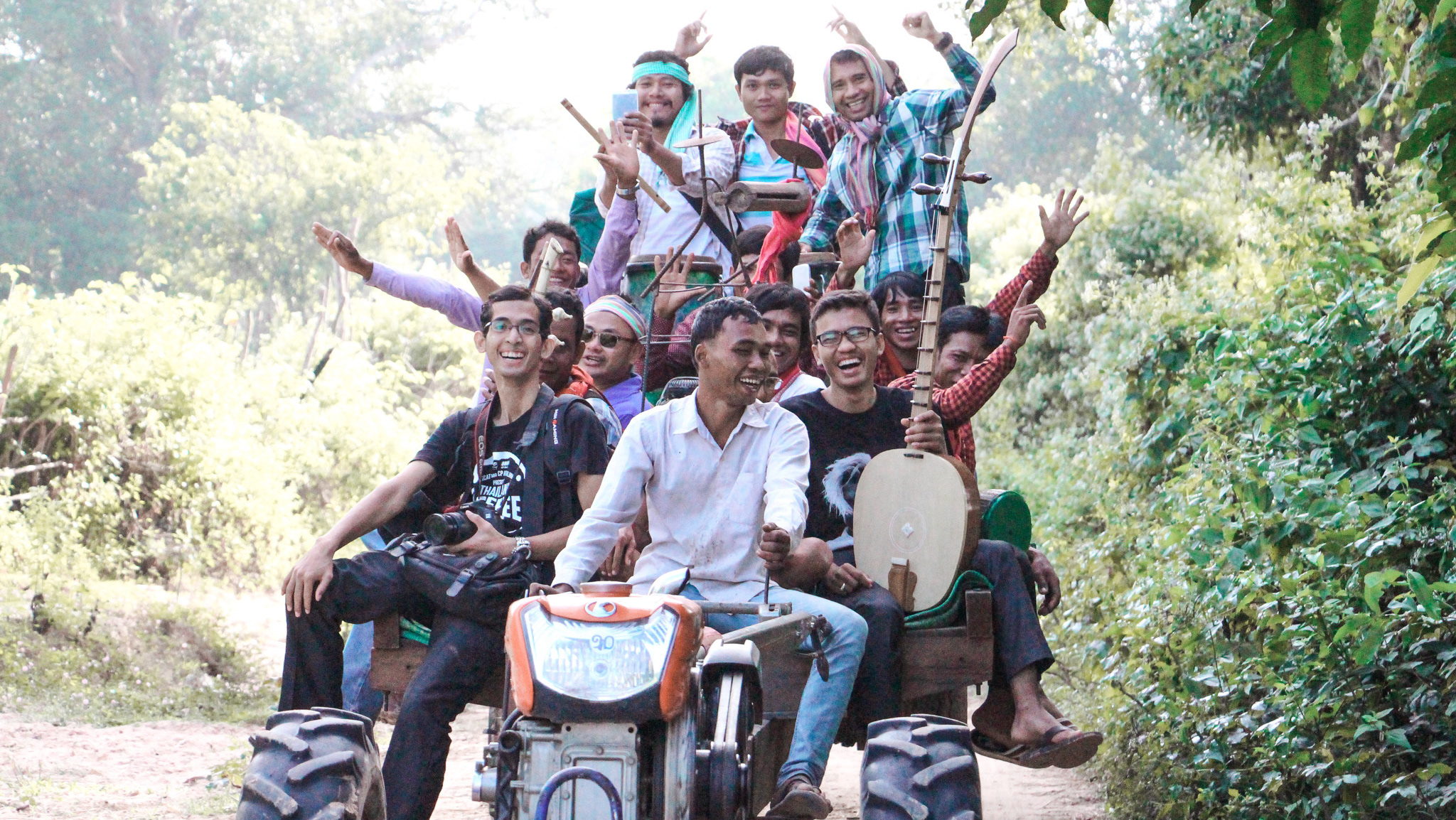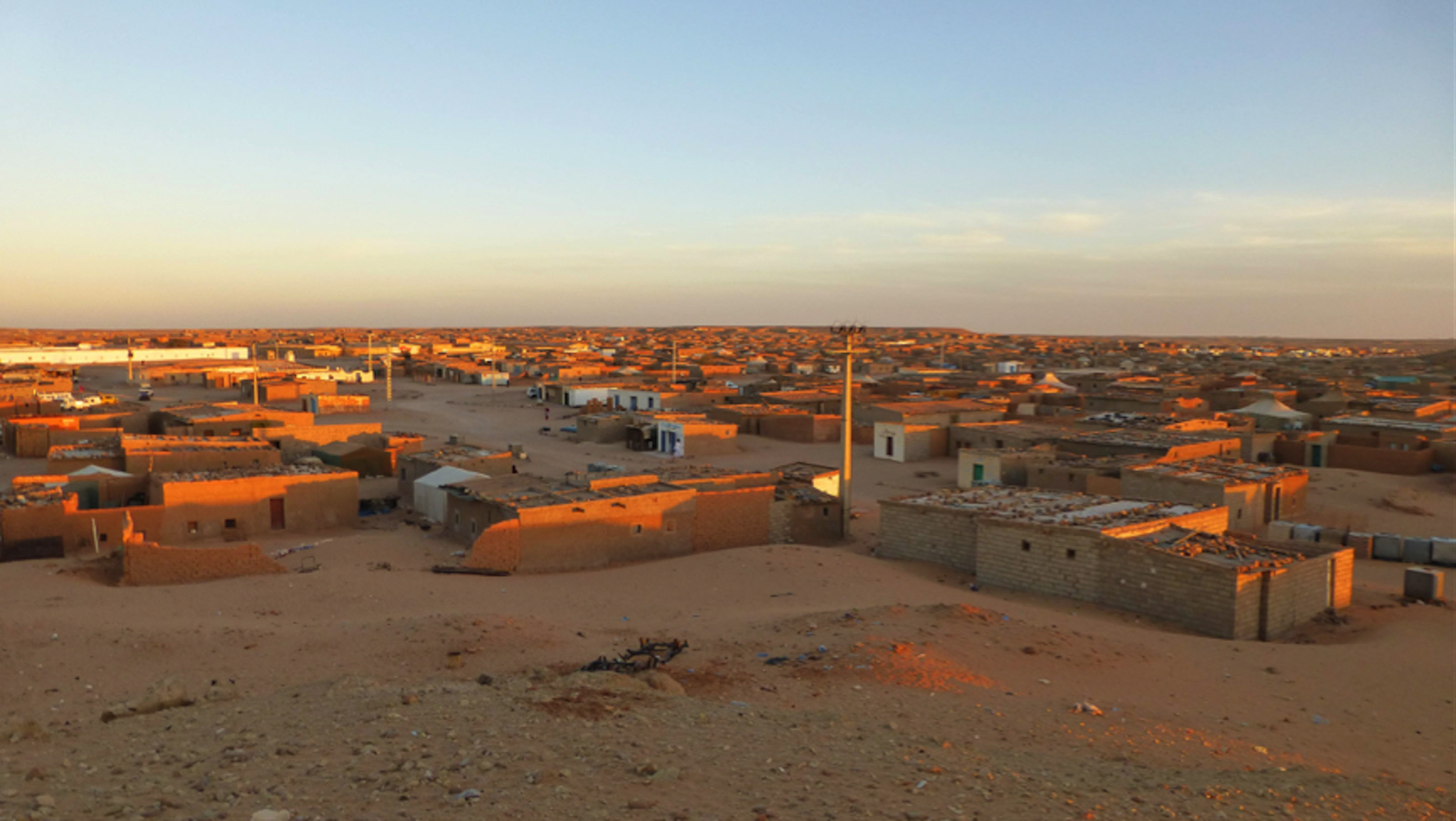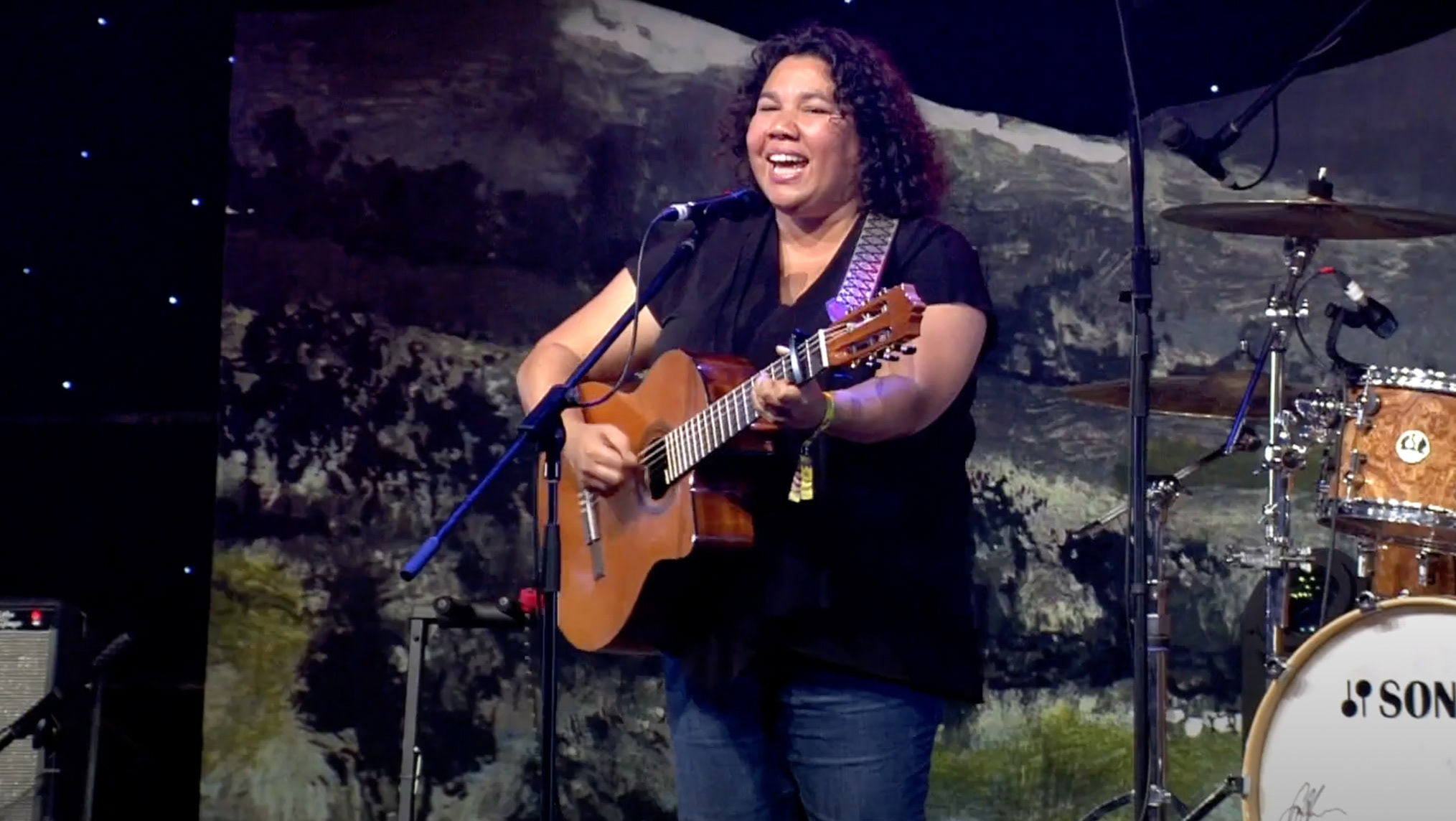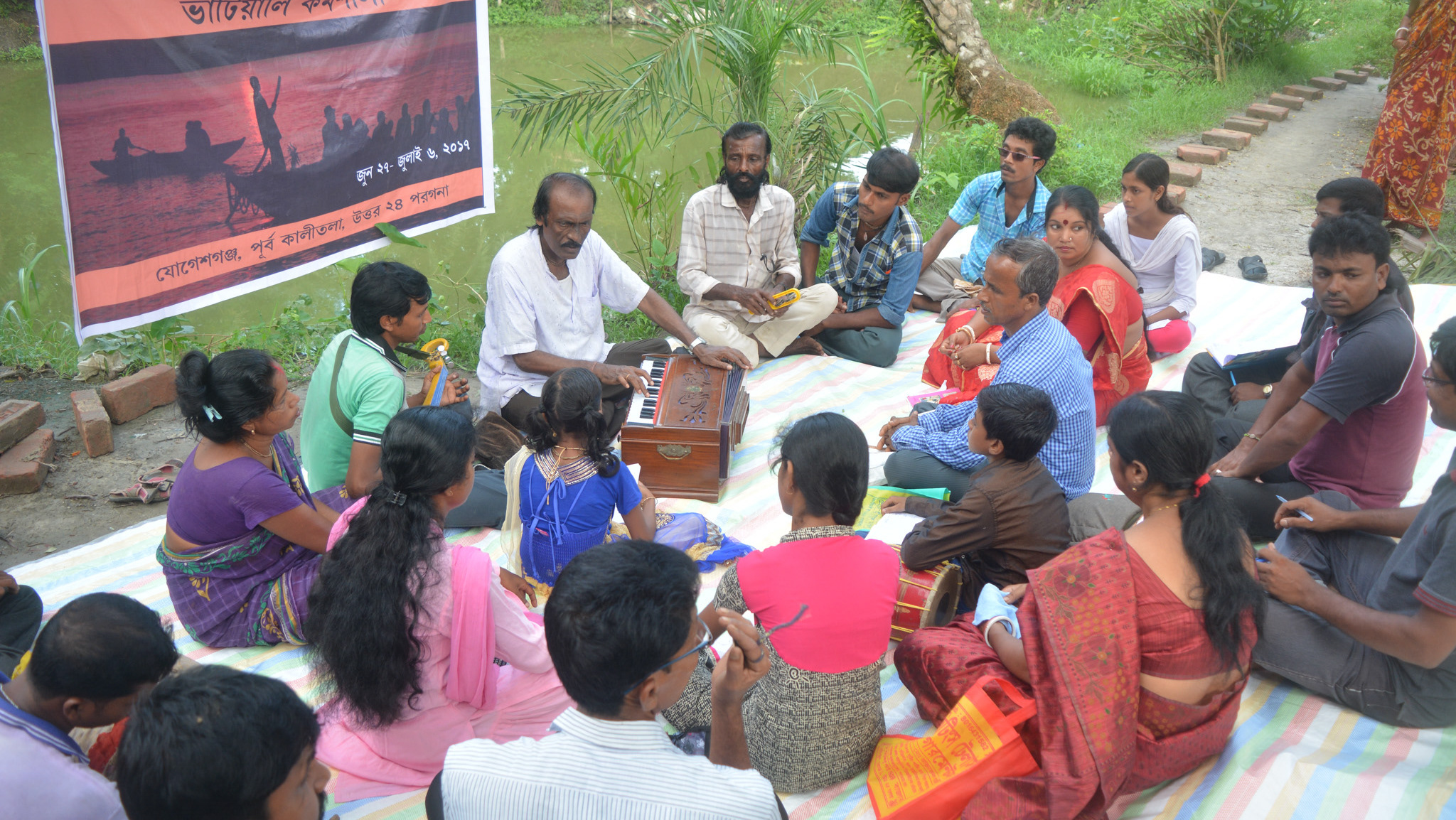Meeting of Knowledges
Catherine Grant with José Jorge de Carvalho and José Bonifácio da Luz (“Bengala”)
Scholars have called it ‘epistemicide’: the ongoing deliberate omission, in formal education, of certain cultural values and ways of producing and sharing knowledge, while attributing truth and validity only to Western ways. This is cultural colonialism in action. Not only does it works against educational and epistemic justice: by excluding ‘small’ musical and other cultural practices from formal education, it also inhibits cultural sustainability.
In Brazil, José Jorge de Carvalho founded Meeting of Knowledges, an ongoing initiative that welcomes local master-musicians and other culture-bearers into university settings to teach. Through the program, the diverse Indigenous, popular, traditional, and African-derived genres of South America are, for the first time, finding their rightful place in the core curriculum.
With de Carvalho and Meeting of Knowledges master-artist Bengala, this case study articulates the dual benefits— for cultural sustainability and for educational justice—of striving to decolonize music education practices and pedagogies.
Bengala (centre) with members of his Arturos community. Photo: Pedro Aspahan, 2022.




